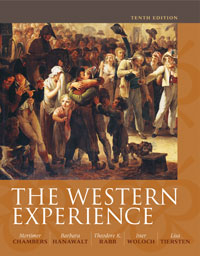1 A) increased the ability of radicals to organize into political units. B) outlawed the ability of the public to carry firearms. C) restricted the prosecution of radicals. D) imposed a stamp tax intended to cripple the radical press. E) increased access to public meetings. 2 A) included Italy, Greece, and Austria. B) included all of Italy and most of Austria. C) included almost all of Italy except for Rome and Venetia. D) included only a small part of northern Italy, including Rome. E) included all of Italy except for Rome. 3 A) rejected plans for public works in favor of foreign military conquests. B) had the support of the people but was strongly opposed by the Church. C) was supported by peasants but opposed by businessmen. D) rejected even the illusion of democracy in favor of authoritarian power. E) claimed a democratic mandate but held authoritarian power. 4 A) between those who advocated an expansionist foreign policy and those that wanted to focus on a domestic one. B) between the aristocracy and the middle class. C) between the middle classes and the workers. D) between political liberals and conservatives. E) between monarchies and republicans. 5 A) evoked opposition from both the left and the right. B) was supported by republicans but few else. C) had the wide support of the people but was opposed by the aristocracy. D) effectively made its opposition toothless by encouraging political debate. E) mostly ended the bitter class hatred by offering public works programs that benefited all sides. 6 A) is an age-old sentiment arising spontaneously. B) is a modern phenomenon often requiring generations of propaganda. C) is based on biological differences in appearance and mental ability. D) invariably strengthens the power of the state. E) evolved from a belief in the divine right of kings. 7 Kulturkampf centered onA) the state's right to control certain aspects of Church function. B) the state's ability to hold the units of the German confederation together. C) the promotion of nationalism as a tool for uniting Germany. D) the territorial threats to the German Confederation by Austria and Italy. E) the German territorial ambitions against France. 8 A) reduced the authority of the regional diets. B) successfully created a modern, unitary state. C) forced Hungary to stay a part of the Austro-Hungarian empire by force. D) was intended to reduce resentment against high-handed government, but was an immediate failure. E) was opposed by liberals but supported by bureaucrats. 9 A) the Ottoman Empire. B) Piedmont. C) France. D) England. E) Austria. 10 A) gain an international forum for discussing Italian issues. B) participate in a glorious military campaign. C) reduce the power of the Ottoman Turks. D) cripple Russian naval power in the Mediterranean Sea. E) retake Italian lands controlled by the Russians. 11 A) Men were thought to be the principal readers of novels. B) The natural sense of beauty formerly attributed to women disappeared in the new art. C) Novels presented women's lives in a way that subjugated them and downplayed their intellectual abilities and skills. D) Women were especially associated with the intimate side of middle-class culture. E) Art ultimately reduced the perception of women's abilities. 12 A) turned the factory into a sort of workhouse for poor children. B) forced the employment of vagrants and criminals in the factory. C) removed barriers to union organization in the factory. D) limited the amount of hours children worked. E) reduced the age at which children could be employed in the factory. 13 A) its leaders' historic role as Holy Roman Emperors. B) its leadership through the Zollverein. C) Austria's non-German preoccupations. D) the dynamism provided by Otto von Bismarck. E) the machinations of the Habsburgs. 14 A) left member states free to regulate their own affairs. B) allowed member states to develop their own armies. C) had a unicameral parliament that linked the member states. D) seemed to ensure the dominance of Prussia by stamping out local interests. E) was believed by German nationalists to offer a satisfactory solution to German unification. 15 A) abolishing serfdom. B) strengthening village communes. C) creating a national parliament. D) strengthening provincial representative institutions. E) relaxing censorship and reducing military service. 16 A) creating the long-deferred national parliament. B) giving the Hungarians autonomy and equal status. C) abolishing serfdom. D) breaking the power of the wealthy landlords and merchants. E) relinquishing claims to Italian territories. 17 A) the professionalization of artists. B) the merging of high and popular culture. C) the proliferation of public facilities for the arts. D) the identification of artistic taste with social status. E) the association of cultural life with national identity. 18 A) the Reform Bill of 1832 broadening the suffrage and more equitably apportioning representation. B) the abolition of slavery in its colonies, the Factory Act limiting child labor, and the Poor Law. C) the repeal of the Corn Laws and the victory of the Chartists. D) a law granting more resident taxpayers the vote in municipal elections. E) limiting the hours that children could work. 19 A) both succeeded by 1850. B) the Chartists succeeded but the Corn Laws remained. C) the Corn Laws were repealed, but the Chartists failed. D) neither passed because of a growing backlash against reform. E) both ended in compromises by all parties. 20 A) toppling Charles X and bringing Louis-Philippe to the throne. B) sparking minor revolts in Italy, Spain, Portugal, and Germany. C) precipitating a revolution in Poland that freed it from Russia. D) inspiring Belgium to break free from the Netherlands. E) sparking a revolt in Poland that was crushed by the Russian army.





